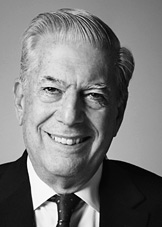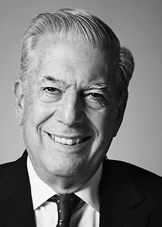Also, since I've been discussing this online for a few years now and the same questions keep coming up, I thought I'd collect them together in (reposted from last year):
The Nobel Prize for Literature: A Slightly Irreverent FAQ
(Oh, and there's a proper one
here.)
What is it?
The Nobel Prize for Literature is one of 5 annual prizes awarded since 1901 according to the last will of industrialist Alfred Nobel (1833-1896), also known for inventing dynamite. (The others are Chemistry, Medicine, Physics and Peace; the Swedish National Bank invented an economics prize "in memory of Alfred Nobel" that isn't official but sort of piggybacks on the others.) The money (currently about 10 million SEK or US$1.5 million for each winner) comes from Nobel’s will. Yes, still. Nobody ever lost money by inventing good ways of destroying things.
It's
not awarded for any one piece of literature but for an author's collected works.
For some reason, it’s considered one of the most important literary awards. This is not an official title in any way.
Who gets it?
Well, first you have to be nominated.
Here’s a list of who is allowed to nominate; basically, lots of people from all over the world. About 350 writers are nominated each year, including great and well-known novelists, poets you’ve never heard of, a couple of non-fiction writers, and Bob Dylan. The list of nominations, and the decision-making process itself, is confidential for 50 years. The Academy has no obligation to take all nominations seriously, there is no official short list, and apart from the Academy members themselves, none of the people doing the nominations have any say whatsoever in who gets it. In other words, being nominated is a bit like buying a lottery ticket; you can't win without it, but you're probably not going to win with it either.
So who gets it?
The winner of the Literature prize is, in keeping with Nobel's will, chosen by the Swedish Academy, an organisation founded in 1786 to “further the purity, strength, and sublimity of the Swedish language,” which mostly means publishing dictionaries and critical studies of 19th century literature. In other words, the Nobel is a comparatively new hobby for them. The Swedish Academy has 18 members (on paper, see below), mostly writers and literature scholars, each of whom is elected for life by the other members.
Note that each of the Nobel prizes (literature, chemistry, medicine, physics and peace) is decided by a different organisation. Who gets the Literature prize doesn't (or at least shouldn’t) have anything to do with who gets the other ones, and vice versa.
Right, so stop waffling, who gets it?
"
The person who has produced in the field of literature the most outstanding work of an idealistic tendency."
…What the hell does that mean?
See, that's the thing: nobody really knows. That's what Nobel wrote in his will, and it’s up to the Swedish Academy to decide what he meant. The interpretation has changed several times over the last 100+ years.
Fine, fine. Who’s won it?
These guys. (And occasional gal.)
Doesn’t it only go to authors nobody’s ever heard of?
It’s rarely awarded to the latest best-sellers, true, and the Academy has a well-earned reputation for not picking the most obvious choices. It’s not intended to reflect popular taste.
Though personally, I think the "nobody's ever heard of the Nobel winners" meme is pretty pathetic. I’d submit that if you’ve never heard of the likes of Steinbeck, Hemingway, Faulkner, Camus, Solzhenitsyn… or to take some of the more recent ones, Pamuk, Lessing, Pinter… are you sure you’re as interested in literature as you think you are, if these names are so completely unfamiliar to you? And if they really do pick someone you’ve never heard of, hey, now you’ve heard of him/her. You have gained knowledge. Is this a bad thing?
Also, I’ve never heard of the guy who won the Nobel Prize for medicine last year. Boo! Hiss! Elitists! Give it to the guy who plays House!
Why isn't Author X on the shortlist?
As previously mentioned, there is no official shortlist. Ladbroke's have no more idea than you or me who's actually being discussed.
Why didn’t/doesn’t Author X get it?
A lot of people claim to know
exactly why certain authors get or don’t get the prize. Which is funny, considering the aforementioned confidentiality. Truth is, until 50 years have gone by, we usually have no way of knowing if they were even nominated.
Pick a reason:
- There’s one award to give out each year, and on average, more than one deserving author. New books are published each year. Do the math.
- The people who decide on it are a bunch of literary snobs. They’re not necessarily politically conservative (by US standards) or raging communist revolutionaries (by European standards). They’re just snobs, elected by other snobs for the specific task of being anal about language and literature.
- See above re: changing interpretations of Nobel's will. Tolstoy was considered too radical, for instance.
- Not everyone is a prophet in their own lifetime. See: Kafka, Franz; Proust, Marcel; and others.
- People, on a whole, read an awful lot of crap and keep expecting the Academy to validate their reading habits. Not gonna happen (see above under snobs, literary).
- The Academy has really boring taste sometimes. Fortunately, the older members are dying off.
- People like to speculate, and they seem to think that the longer they speculate about an author, the better his/her chances of getting it. Whether the Academy gives a damn about how often a certain author has been mentioned by people who are not them is unknown but considered unlikely.
- Authors die. The Nobel can’t be given out posthumously. Good thing, or they’d have to start with Homer and Gilgamesh.
- Authors live. Not getting it one year doesn’t disqualify you from getting it next year or 20 years from now. See: Lessing, Doris.
And so some writers, for various reasons, end up without a Nobel prize. Funnily enough, we keep reading them despite their non-Nobel status. Putting it succinctly: if Tolstoy, Woolf, Joyce and Twain didn’t get it, there can be no shame in NOT getting a Nobel prize.
It only goes to Scandinavian authors.
Except for how not one Scandinavian author has won it since 1974. And only 14 before then. Which is still more than the total number of African and Asian (or for that matter, female) winners, true.
Why do they hate America?
So far, 11% of the winners have been from the US. Not
too shabby for an international award. Feel free to compare it to the international spread of the Oscars.
But they said no American writer would ever get it!
They said no such thing. The former secretary of the Academy said that American literature
as a whole was "insular" and "ignorant" regarding non-US literature, but that there is "powerful literature in all big cultures." (He's said similar things about literature in other countries too; see above re: snob, literary.) Stupid, perhaps, but that's what he said. A hundred angry US bloggers concluded the rest, then to prove him wrong, promptly responded to Le Clézio getting it with "Le who?"
Half the Academy quit in protest of Jelinek getting it!
One (1) member, Knut Ahnlund, quit. A year later. And he’d already quit the Academy ten years earlier and hadn’t taken part in its work since then (see above under life, elected for). At this point, it's a bit like George Lazenby announcing that he's leaving the James Bond franchise.
For the record, the other vacant seat is Kerstin Ekman's (she, and two others, left the Academy in 1989 after they failed to condemn the fatwa against Rushdie as much as she wanted), bringing the total number of active members in this year's Nobel discussion to 16.
Everybody knows that it's just political.
Do they now? Well, it's apparently supposed to go to authors who deal with idea(l)s. Those tend to touch upon political subjects. And again, Tolstoy didn't get it because he was considered too controversial and the Academy didn't want the award to be political – does that seem right to you?
Shouldn’t we have a say in this?
Not unless you’re willing to contest Nobel’s will in a court of law, no. It's private money, handed out by a non-government organisation. It's really none of our business what they do with it.
Why should we care, then?
I don’t know. Who said you should? If you don't, don't. After all, it's really just a book recommendation with a price tag on it.




